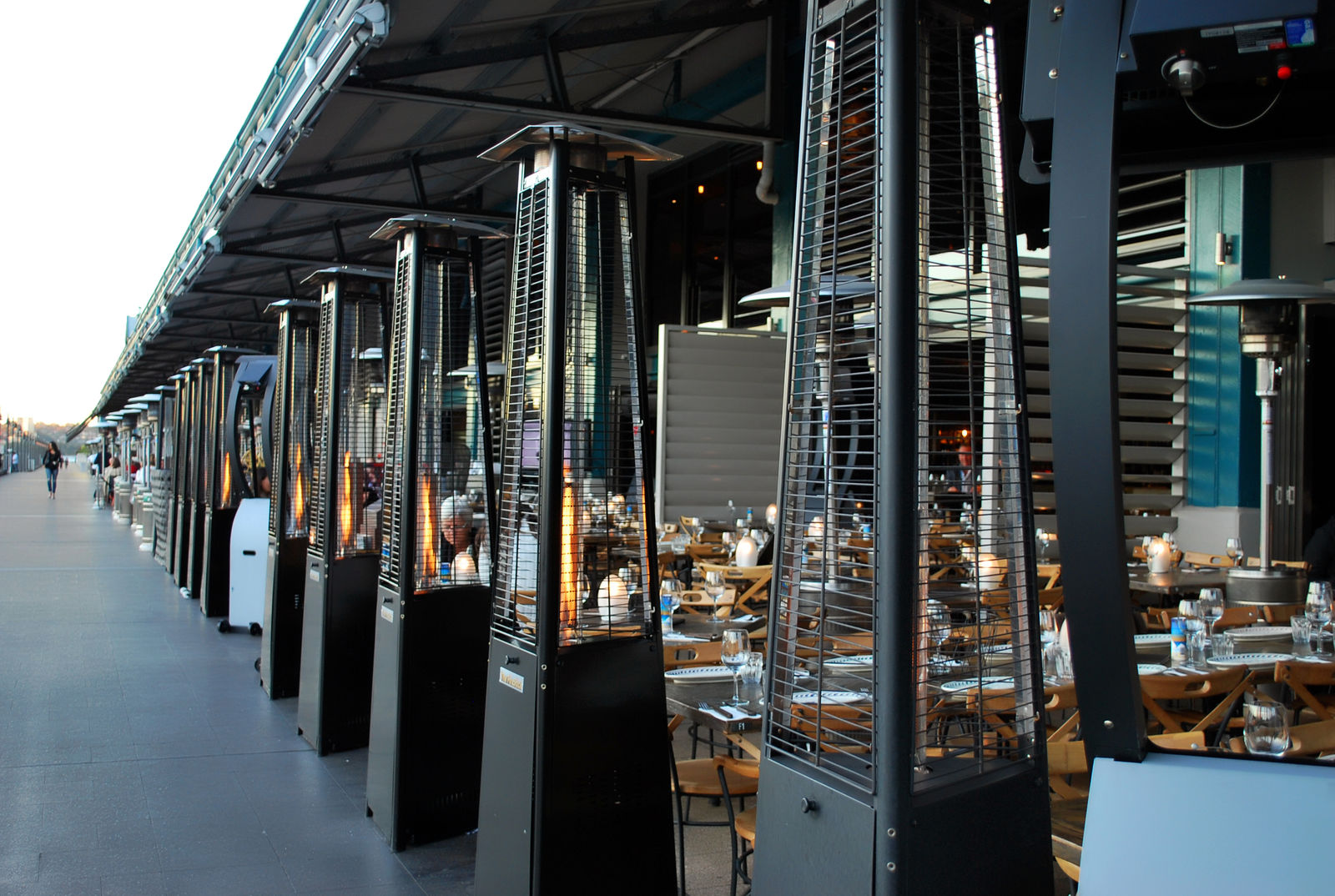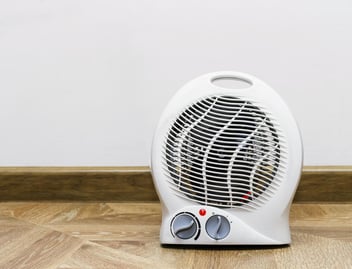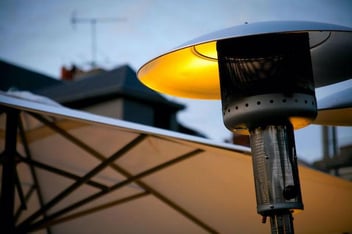As more municipalities across BC extend temporary patio permits, many restaurant and bar owners have turned to propane space heaters to provide warmth and ensure that guests and employees remain comfortable. However, as with any gas appliance, there are safety risks that come with using propane heaters — even in outdoor environments. We're sharing some essential safety tips for restaurant owners and workers to keep in mind when using propane space heaters on restaurant or bar patios.
1) Choose a Safe Location
Before setting up a propane space heater, make sure that you have selected a safe location. Place the heater on a stable and level surface, away from any combustible materials such as decorations, awnings, umbrellas, tablecloths, or other furniture. Keep the heater away from uneven surfaces like grass and high traffic areas where it could be knocked over.
2) Check For Leaks
Inspect the propane tank and all hoses for any visible signs of wear and tear or damage. Check the connections to make sure they are tight and secure. Test the tank for leaks by applying a soapy water solution to the tank and hoses. If bubbles form, there may be a leak, and the heater should not be used until the leak is fixed.
3) Never Leave the Heater Unattended
It's essential to have someone responsible for monitoring the propane heater at all times. Even a small mistake or oversight could lead to a fire or carbon monoxide poisoning. Make sure that someone is assigned to watch the heater and shut it off when not in use.
4) Keep a Fire Extinguisher and Carbon Monoxide (CO) Alarm Nearby
In case of a fire, it's important to have a fire extinguisher nearby. Make sure that all employees know where the fire extinguisher is and how to use it. It is also a good idea to keep a portable CO alarm on or near the patio to detect any CO. Keep an eye out for CO symptoms such as headaches, dizziness, nausea, and confusion.
5) Allow for Proper Ventilation
When using propane space heaters, it's essential to prioritize proper ventilation. Without enough airflow, CO can build up to dangerous levels. To prevent this, make sure the space around your heater is well-ventilated and never use the heater indoors. If you're using the heater in a sheltered area, there are a few things to keep in mind:
- The shelter can have walls on all sides but no overhead cover
- An overhead cover but no more than two parallel or right-angle side walls
- An overhead cover and three side walls as long as 30% of the perimeter is permanently open.
6) Store and Move Propane Tanks Properly
To keep everyone safe, it's essential to follow some guidelines when storing and moving propane cylinders. Don’t store propane cylinders indoors, in the garage, near operational heaters or smoking areas. If a cylinder is not connected to an appliance, it should be stored upright. And remember, never move a portable heater while a cylinder is connected. Before moving the heater, make sure to shut off the fuel supply and wait until the unit has cooled down. Propane tanks should always be stored outside in a well-ventilated area, away from direct sunlight, high temperatures, and anything that could ignite.
7) Train Employees on Safety Procedures
It's a good idea to educate all employees on the safe operation of propane space heaters. Provide training on the above safety tips and ensure that employees understand the importance of always monitoring the heater. It is also best practice to keep a record of all staff members who have received training on propane space heaters.
Propane space heaters can be a great way to keep customers and employees comfortable on outdoor patios, but necessary safety precautions need to be taken to prevent accidents and injuries. By following these safety tips, restaurant owners and workers can keep everyone safe. Download our printable space heater safety guide to share with your employees or coworkers.
Are you using a propane space heater in your home? Take a moment to review our safety tips for homeowners using propane space heaters.




